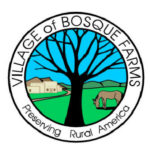Paw it forward
The little purple pansy on the long stem reached out as if to say “Hi! Take me home!” So, I did.
She was on a stand outside the grocery full of alluring spring plants — a candy store with flowers! Tough to resist. I placed her on the plant stand with my small collection of other plants and welcomed her home.

Colleen Dougherty
Two days later, my bi-weekly email from Treehugger arrived, “15 Pet-Friendly Houseplants to Adopt into Your Home.” “Pet-friendly … ?” “Gosh,” I thought, “I didn’t even think about that!” I read that article and another site hyper-link within it, and went on from there. I even found info on vegetable gardening!
Luckily, my new pansy passed the pet-friendly test, as did my spider plants. Treehugger also deemed safe the African violet, Boston fern, hens and chicks and the ever-popular Christmas cactus.
The ASPCA’s searchable database of toxic and non-toxic plants was very informative. It detailed 417 plants, rating their level of toxicity by the health issues they cause, from irritation of the skin or mucous membranes, to intense gastrointestinal symptoms, to heart failure and death.
The list isn’t exhaustive, of course, so I looked up a few extras myself including New Mexico’s popular hollyhock (non-toxic, yay!) I learned that the fruit, leaves and stems of fruit trees like peach, cherry and apple contain a type of cyanide — especially when they’re wilting. Lily and tulip bulbs can cause kidney failure; hemp, marijuana and tobacco can lead to heart failure; hops can cause high temperature, seizures and death; nightshade plants can cause nervous system suppression and slowed heart rate; and the list goes on.
I was shocked to find vinca on the big bad list, and counted my blessings that the vining plant I wintered over inside was not tempting to my cats — ingesting it can cause low blood pressure, coma and death! That plant has now been relocated.
The Pet Poison Helpline site had good information on vegetable gardening. Carrots, beans, peas and zucchini are fine, and I knew that all types of onion and garlic plants, including chives and leeks, can cause deadly anemia, but I learned something interesting about tomatoes.
I once painted a portrait of a golden retriever who loved them. She’d accompany her human into his garden and eat only the ripe tomatoes that had fallen off the vine, leaving the rest for him. She was not only considerate, but smart: green tomatoes (and the green leaves of the plant) contain “tomatine,” which, if they eat enough, can cause vomiting, weakness, and even irregular heartbeats! But tomatine lessens as the tomatoes ripen! So fry up those green ones for yourself, but not for your pup.
Beware of fertilizers, pest control and weed killers (operative word is “killer.”) They can cause serious harm to your pets and other animals as well. My feeling is if you must wear gloves and a mask to spray it, it’s not safe for your pets to sniff, roll in, eat or lick off their paws. Please look for safe, natural alternatives instead.
Don’t let them into your compost pile — mold can cause muscle tremors, bacterial infections and stomach problems if ingested. And that lovely smelling cocoa bean mulch has the same toxic effect as chocolate!
If you know — or even suspect — your pet has gotten into something, here are some basic recommendations: Immediately remove the pet from the area and move the toxin out of reach; check for normal breathing and activity at the moment; collect a sample of the toxin along with any packaging (plant ID tags, chemical instructions and ingredient labels) to have with you when you call or visit the vet (like I did when my cat, Nicholaus, ate the middle out of my just-baked brownies),
Do not give your pet milk, food or any other home remedies, and do not induce vomiting without talking to vet or help-line personnel. (By the way, hydrogen peroxide doesn’t work on cats at all. It just causes massive foaming and salivation.)
Lastly, always get help even if you only suspect a poisoning because waiting even a short time could have serious consequences. Keep your vet and hotline numbers in your phone or somewhere you can get to them quickly.
As “The Honest Kitchen” site stated, “Before you bring a plant home, do your research.” May your plants and your pets all be healthy and thriving this summer!
Hotline numbers are:
- ASPCA: 888-426-4435 ($95 fee)
- Pet Poison Helpline: 800-213-6680/855-7647661 ($85 fee).
















